Author
Educator
My work is focused on solutions to help students, educators and their institutions to thrive, not just survive.
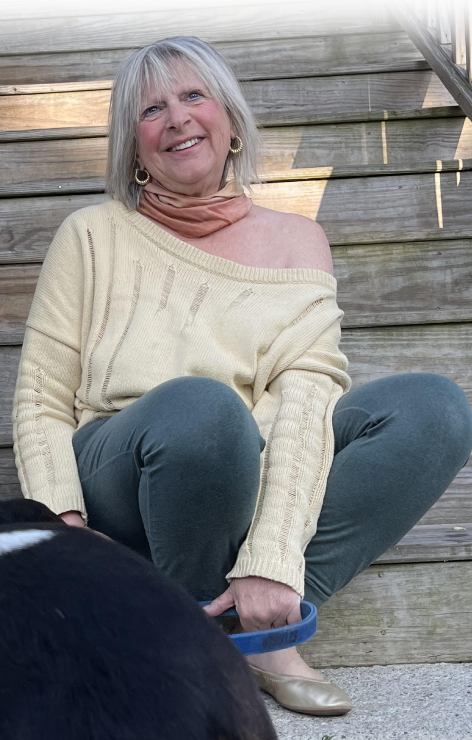
My work is focused on solutions to help students, educators and their institutions to thrive, not just survive.


In Japanese culture, there is a tradition that when things break, they are not discarded. They are repaired with gold and accompanied with the phrase: More Beautiful for Being Broken. Hold that thought.
School Reopening Confusion (to state it nicely)
There is deep confusion about schools reopening this fall. Some schools are doing totally online learning. Others are having in person learning. Still others are using a hybrid approach. All involved in education are experiencing anxiety of one sort or another. Teachers and professors are worried about their own health and that of their families. Parents are worried about the health of their children and how the working parents will manage complex school schedules. Some are worried about the quality of education that will be provided, particularly in the context of online learning. Students are worried too; they have not been in school for a while. There will be new rules if school is in person; they may not be up to speed academically; sports and play seem like they will be missing. Some kids realize that they simply cannot adapt to online learning and they will fall farther behind; they won’t attend or they won’t engage.
It’s quite the mess. And, we have not done sufficient professional development in anticipation of reopening — in whatever form it takes. We have been so focused on physical well being that psychological well being has taken a back seat, if it is in the car at all. And, while we can differ as to the definition of trauma in the educational context, perhaps we can agree that many students and teachers and parents are experiencing trauma now — with the pandemic and with the racial tensions and with the economic uncertainty and with no end in sight on which we can rely.
Add to all this that whatever planning has been done has often not been inclusive. It has involved some groups within the educational community and not others. Think about planning the return to school without active involvement of school nurses. Think about decisions made at the superintendent level, bypassing teachers and just informing them of this and that decision. Think about not engaging older students at the college level. Ponder the NCAA not taking any strong positions or creating any coordinating committee for collegiate sports. It is a problem with many tentacles. Some decisions are made by too few. Some are abdicating decision-making. We are losing our balance.
Solutions: Yes, They Exist
It is not too late to ponder giving teachers and parents more tools to help them cope with their own trauma and that of their students/children. These tools exist but the problem is that we have not shared these tools widely among teachers. To that end, here are some tools that I have created (one with Dr. Ed Wang), all of which will be available before the start of school (assuming restart is in September). They are offered here, not in order of importance or value or utility. They are offered as ways teachers and parents/caregivers can help students get ready learn, to engage. These are tools to help control the autonomic nervous system responses. These are tools that use our knowledge about trauma’s impact on our brains and our bodies. These are tools that can help us now.
1.
Consider purchasing this right-priced book: Tongue Twisters and Beyond: Words at Play. It can be preordered at www.northshire.com or on Amazon. Bulk sales available too from Northshire Books. The book is filled with tongue twisters and word games and spoonerisms. Students can read in shapes (yes really). And tongue twisters (which are actually brain twisters) allow us to laugh and make mistakes — adults and children alike. They open neural pathways; they enable distraction and at the same time, they involve learning. There are new words and efforts to enunciate and bring creativity into play.
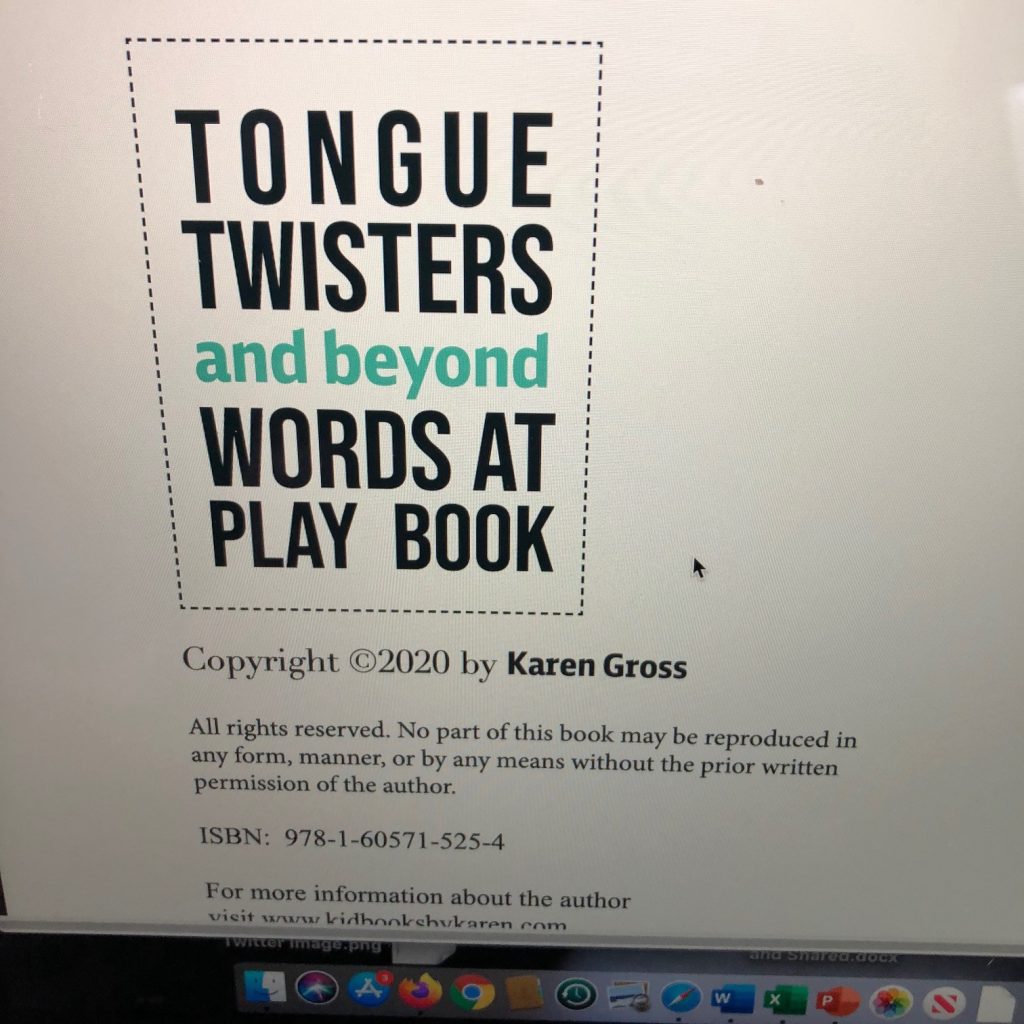
2.
Consider downloading The Feeling Alphabet Activity Set (co-authored with Dr. Ed Wang). This allows students (and parents/teachers) to identify their negative and positive feelings. The point is that the start of addressing trauma is to name what one is occurring within oneself and recognize what one is feeling. There is no way to tame trauma (and feelings) if you can’t name it (them). This activity set also has a myriad of suggestions for play too — coloring in letters (or copying their design), charades, feeling word searches, feeling thought bubbles. It will be available on www.karengrosseducation.com at the end of August, and it too will be right priced to make it accessible to many.
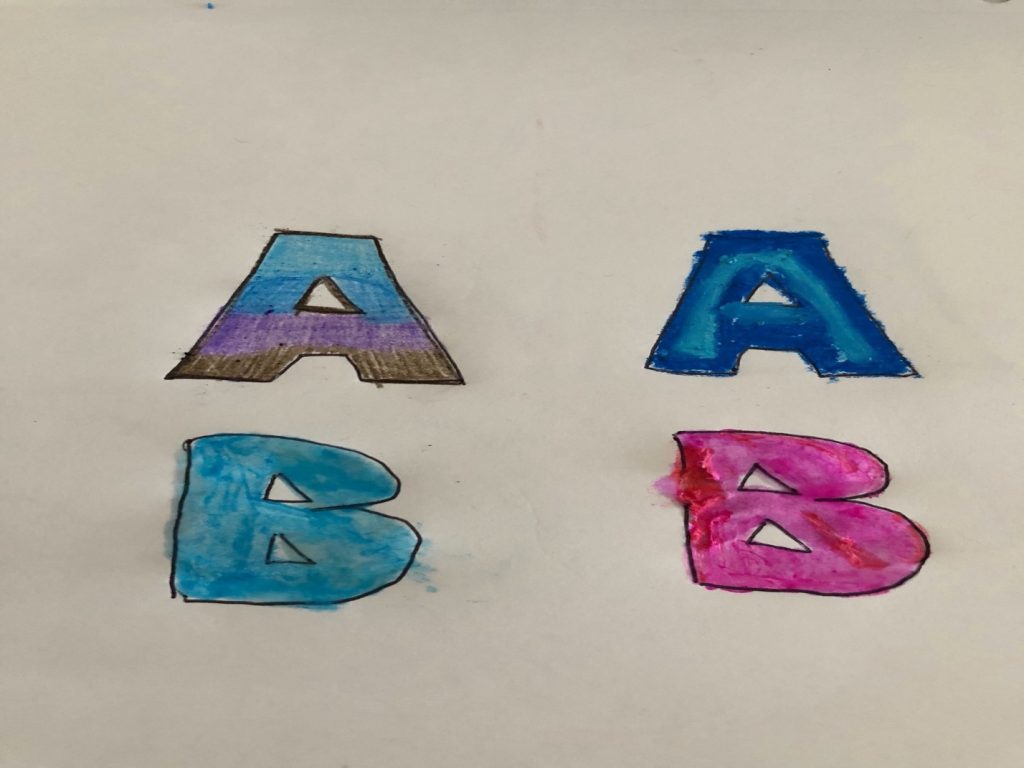
3.
There are instructions for completing Trauma Responsive Tool Boxes, which can be filled with a myriad of different items that can be adapted to the age and stage of the user. Use of what’s in the toolbox is beneficial but so is just seeing the tool box and recognizing that others see what is occurring and have a name for it and own it and recognize it. Completed toolbox samples will also be available. These will be at www.karengrosseducation.com.
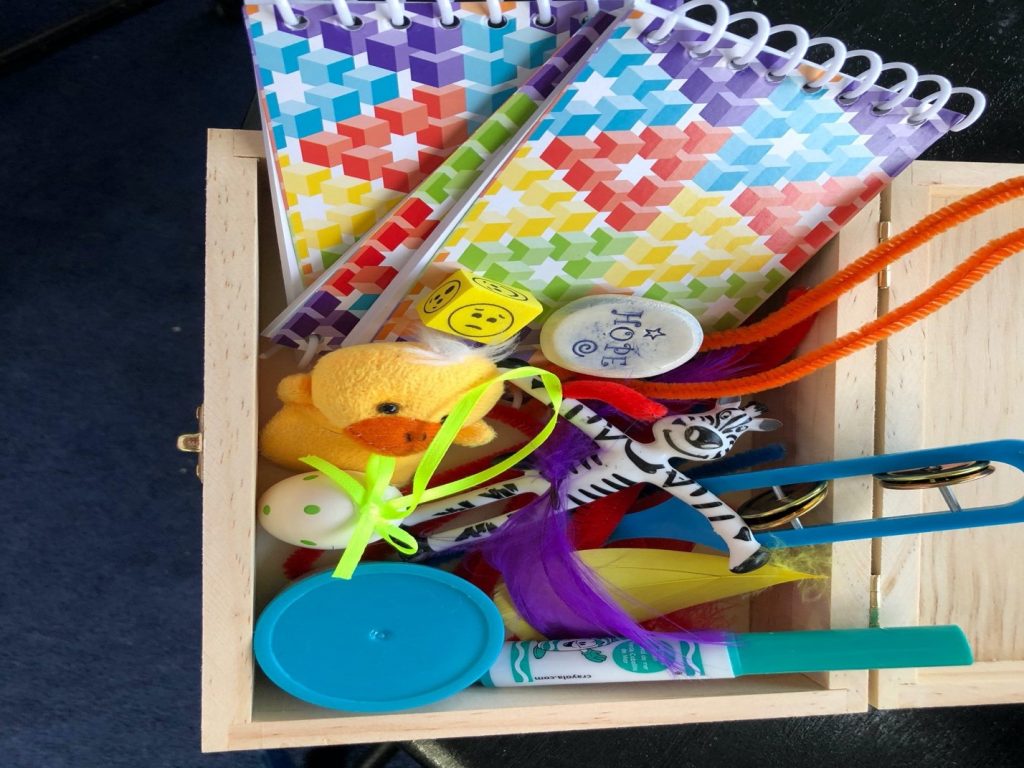
4.
Consider purchasing We See You/Te Vemos. This is a bilingual book (English and Spanish) that is printed on indestructible paper. Perfect for the pandemic — it can be cleaned off and wiped down. It can be read to and with younger children. It can be used with older children to learn a new language. It has suggestions in English and Spanish for games that are keyed into the book. Then, there are multi-racial characters and the theme is object constancy, something that is critical in this time of change and loss and separation. It is available at Amazon and www.northshire.com.
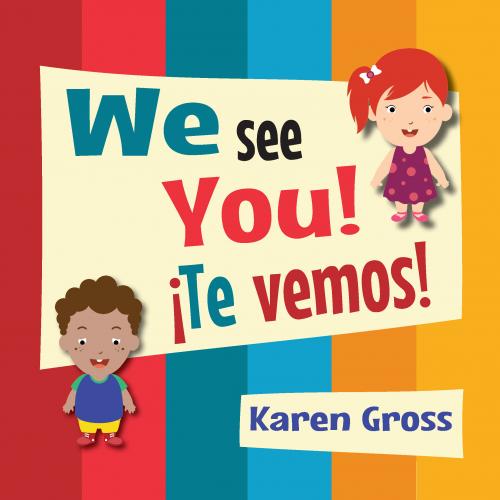
5.
For adults who want to learn more about trauma and trauma symptomology and strategies for its amelioration (it never disappears), there is my new adult book: Trauma Doesn’t Stop at the School Door: Strategies and Solutions for Educators PreK-College. It was released on June 22, 2020 by Teachers College Press and is available through them at www.tcpress.com/karen-gross or at Amazon. There is an ebook version too. The key to the book is that it grounds theory in practice and has concrete suggestions that can be replicated and scaled and adopted or adapted.
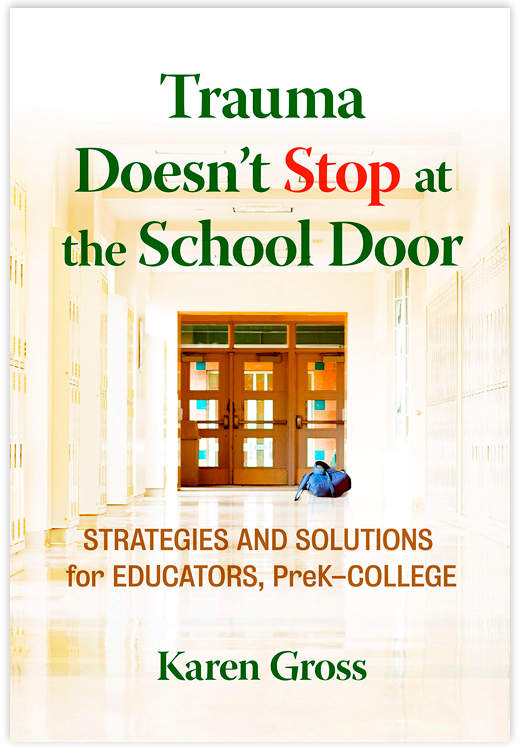
Consider these all a starter set of suggestions for things that can be used with and for students and adults to ease school re-entry. Consider them ways to alleviate trauma symptomology. Consider them as tools that are trauma responsive.
To return to the opening image and Kinsugi reference, I want to note that there are ways to address trauma and its symptoms. And while we never bounce back to where we were, we can bounce forward. The described tools give me hope — hope that we can navigate these troubled time and facilitate student academic and psychosocial success. Perhaps these tools can be items that message: more beautiful for being broken.
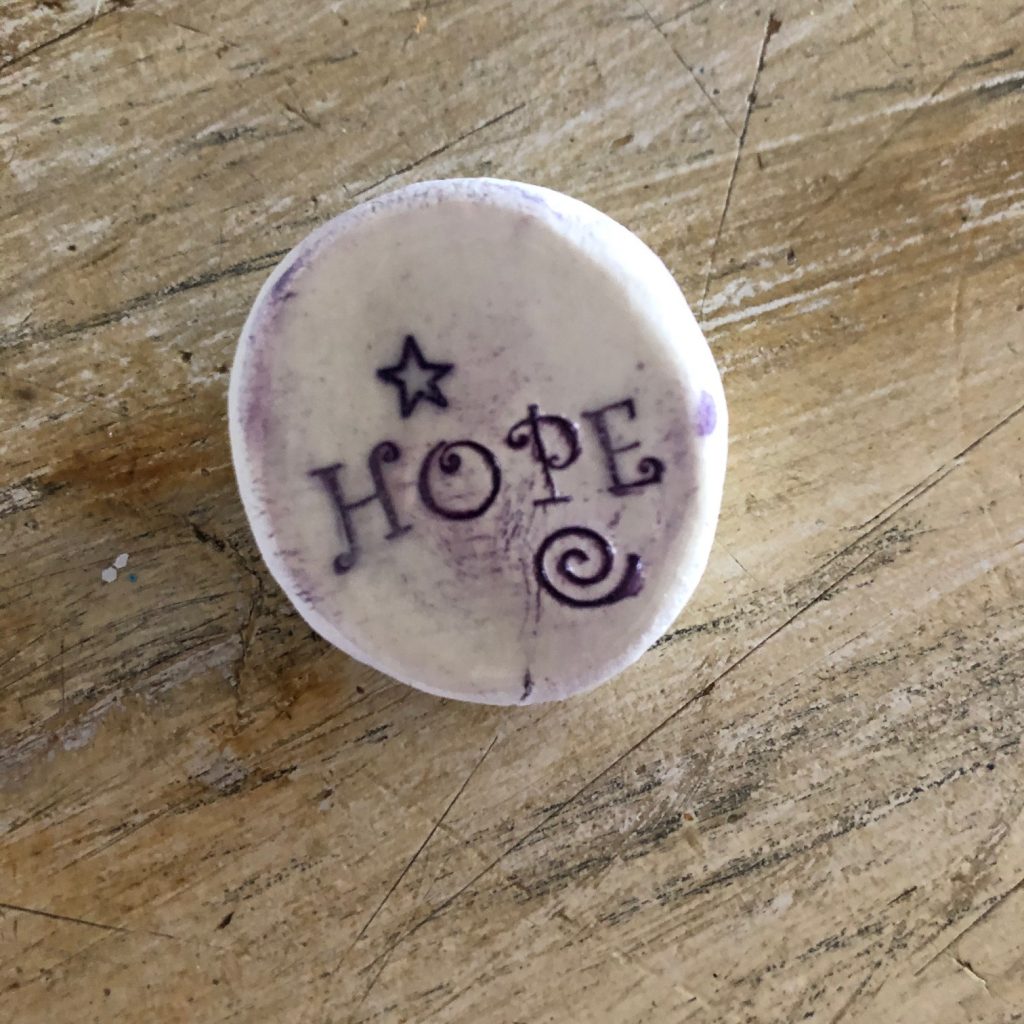
This is the official Virtual Launch of Karen Gross’ new book, Trauma Doesn’t Stop at the School Door: Strategies and Solutions for Educators PreK-College, released by TCPress on June 19, 2020.
Join us for a panel discussion and giveaways!
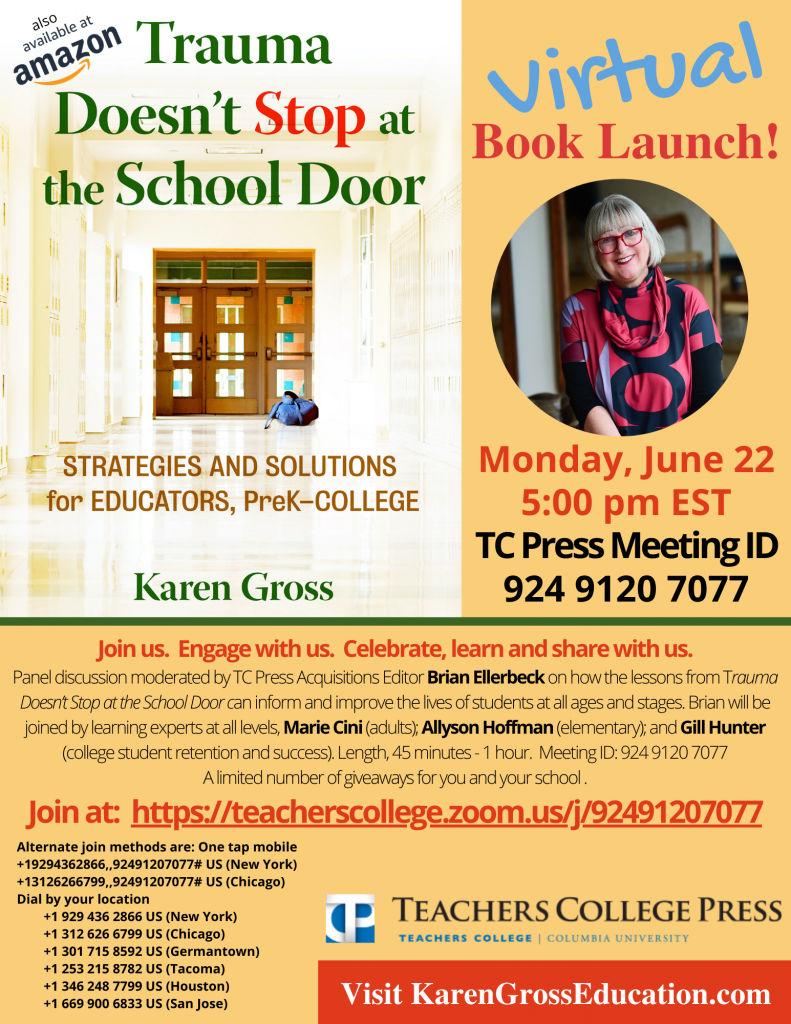
The Zoom launch will have a 30-minute panel discussion of this new book and its potential to facilitate student success. Event will be hosted by Brian Ellerbeck, the Acquisitions Editor at TC Press. Panelists will be Marie Cini, Allyson Hoffman and Gill Hunter, each extraordinary educators representing different segments of the academic pipeline from elementary school to adult education.
Three copies of Trauma Doesn’t Stop will be given to 3 attendees based on a random drawing and 10 takeaway gifts will be sent to the first 10 people signing into the Zoom book launch. The author will introduce the panel and will be available for informal chat time during the Zoom launch. We look forward to this launch on Zoom and to sharing this important new and timely book with you all. See you on June 22nd (a Monday) at 5:00 EST.
Hosted by Teachers College Press and Karen Gross
(917) 363-4872
The book is available for pre-sale at Amazon.com and other locations. Official pub date is June 19, 2020:
Join Zoom Meeting
https://teacherscollege.zoom.us/j/92491207077
Meeting ID: 924 9120 7077
One tap mobile
+19294362866,,92491207077# US (New York)
+13126266799,,92491207077# US (Chicago)
Dial by your location
+1 929 436 2866 US (New York)
+1 312 626 6799 US (Chicago)
+1 301 715 8592 US (Germantown)
+1 253 215 8782 US (Tacoma)
+1 346 248 7799 US (Houston)
+1 669 900 6833 US (San Jose)
Meeting ID: 924 9120 7077
Find your local number: https://teacherscollege.zoom.us/u/aeaka4c61e
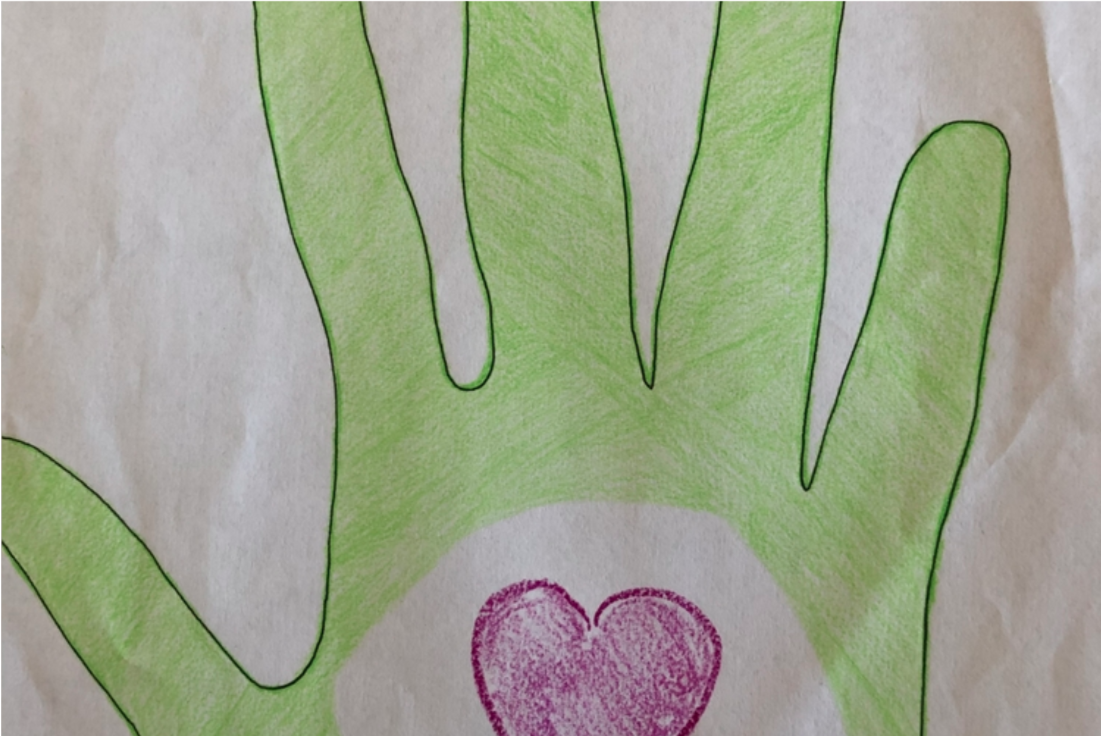
My newest book with Columbia Teachers College Press and a sidequel to my book, Breakaway Learners, is now available for pre-order on Amazon and Columbia Teachers College Press. Publication date is June 2020, in time for faculty and staff development and classroom use for Academic Year 2020 – 2021.
The title to this blog is the book’s title, and the book probes and offers suggestion for how to facilitate student success for those students PreK—College who have experienced trauma. Real in the trenches suggestions at macro and micro levels, all grounded in their and empiricism.
The ebook is discounted at the TCPress site. And TCPress will provide steep discounts for sales to groups or sales for events in which I participate, whether by SKYPE or ZOOM or FaceTime. Reach out to me or Michael McGann at the Press. I did a webinar from the Yes We Must Coalition on the book and it is available for a free download from their website.
Continue reading “Trauma Doesn’t Stop at the School Door”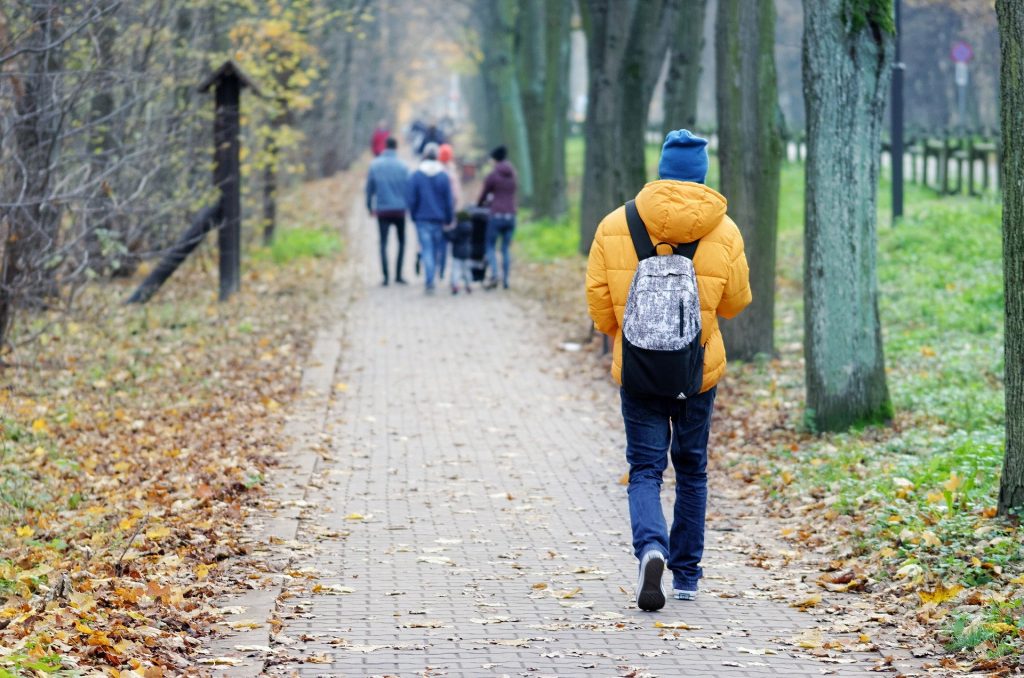
Hardly a week goes by without some trauma in the US. Some events are nature made; some are human-made. There appear to be fewer and fewer “safe” places and spaces. The usually “safe” places – schools, universities, churches, concert venues, public streets – are not safe.
And, there is constant media coverage of whatever horrific event is going on, making their reach even broader. There are also anniversaries of past traumatic events – from Sept. 11th or Kent State. Both children and adults are affected, those who are at the events and those who know people at the events and those feeling the impact of the events from afar.
Add to these large “T” events, defined as big one point in time trauma, this reality: there are a growing number of young people who are experiencing small “t” trauma in their daily lives. These are young people exposed to drugs, shootings, parental or guardian or familial abuse, hunger, homelessness, and illness (one’s own and that of family members). The exposure to these traumas change a child’s brain hard wiring and can affect their health and well-being through adulthood. Yes, really. And small “t” trauma is “big” in terms of its effect.
Continue reading “We Don’t Teach Educators Enough About Trauma”
We read and hear about the coronavirus almost every minute of every day.
As an educator, I read about how educational institutions are preparing for the virus in the US; some student abroad programs are being cancelled. Student enrollment going forward will change as some students will struggle to gain access to the US. The role and use of online learning will take on new meaning and new dimensions, even among those who were reticent. One nation closed schools for a month.
As a person with expertise in trauma and its impact on students across the US educational pipeline (see: Trauma Doesn’t Stop at the School Door (TCPress June 2020 with pre-order), this virus and the threat of its spread has me worried. As I reflect on students, teachers and families, I know that prior trauma can be retriggered by new trauma. And the new trauma doesn’t have to be in our backyard. (Were I an economist, I’d be fretting about trade and the markets.) And teachers/professors will feel the impact of the virus even if the virus has not directly touched their community. It will touch their classrooms, dining halls, residential halls, athletic events, student centers and health facilities.
Continue reading “Coronavirus, Trauma and Children”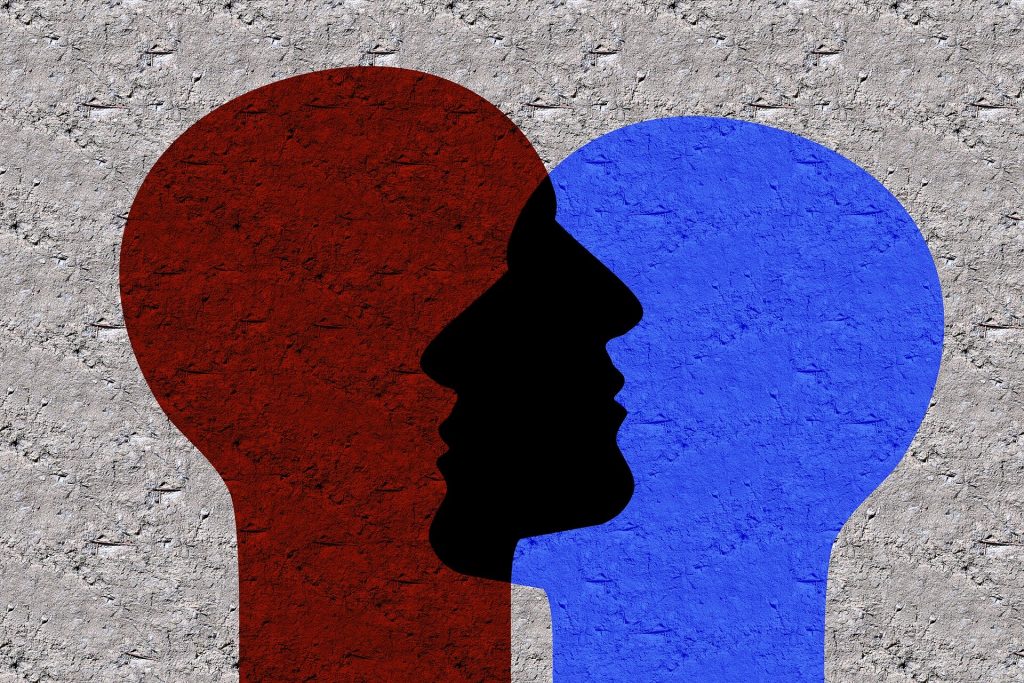
We live in a world surrounded by trauma. There’s no doubt about it.
The trauma comes from a myriad of sources including childhood adverse experiences, natural disasters and shootings in locations commonly considered safe. The fact is that trauma produces symptoms.
While symptomology differs from person to person (even within the same family), it affects the capacity of individuals of all ages to learn and retain information.
Here’s why.
When a person experiences trauma, it affects their bodies and their brains. The immediate response to trauma is autonomic and when our nervous system is activated, we cease using the cognitive portions of our brain. We use our primitive brain to survive. And, as we all know, we need our cognition to be operational because that is where most learning is enabled.
Continue reading “Trauma and Adult Learners”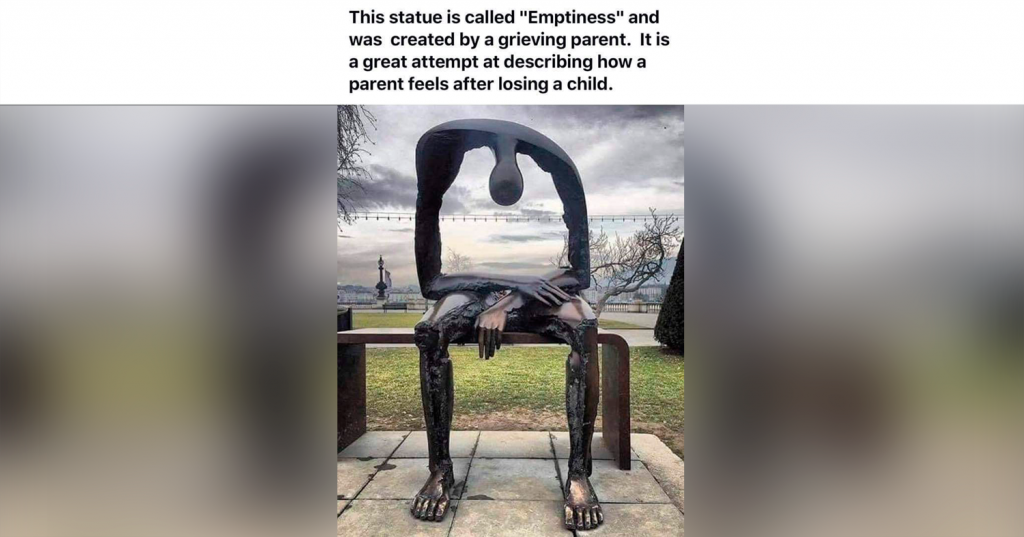
I have been focused of late on trauma and its profound effects on students across our educational system. Most recently, I have addressed how to think about trauma “anniversaries” and the complexities that are entailed in remembering and honoring and commemorating natural disasters and other unspeakable events like school shootings, suicides and deaths by overdose.
In particular, I have been thinking about the need to plan commemorative events because there are so many people affected and so many possible approaches that we need to reflect long and hard on how to do what is best for survivors. Whole communities are involved.
It is in this context that I read a piece published by the Viva Center, founded in 2010 and dedicated to addressing mental health. Here is the link to the article that made, in several words, my blood boil:
Continue reading “I Beg to Differ on How to Deal with Trauma “Anniversaries””
An Interview with Penny Bauder (originally published on Medium)
As a part of my interview series about the things that should be done to improve the US educational system I had the pleasure to interview Karen Gross. Karen has taught and continues to teach across the educational pipeline. A former college president and Senior Advisor to the U.S. Department of Education, she currently serves as Senior Counsel to Widmeyer Communications, a Finn Partners Company, and as an Affiliate to the Penn Center for MSI’s at the University of Pennsylvania Graduate School of Education. She blogs/writes for many education outlets including WPo, InsideHigherEd, Chronicle, Aspen Journal of Ideas, DiverseEducation, and MEDIUM.
Karen is the author of numerous children’s books, and her mission is to encourage imagination, creativity, and inspiration through humor and fun, all while learning. She is also the author of the adult book, Breakaway Learners: Strategies for Post-Secondary Success with At-Risk Students, which provides a pathway for improving the educational success of low income, first generation, minority students. In addition, she’s the author of the forthcoming book called Educating for Trauma: Educating for Student Success which will be published by Columbia Teachers College Press in 2020.
Continue reading “Here Are 5 Things We Should Do To Improve the US Education System”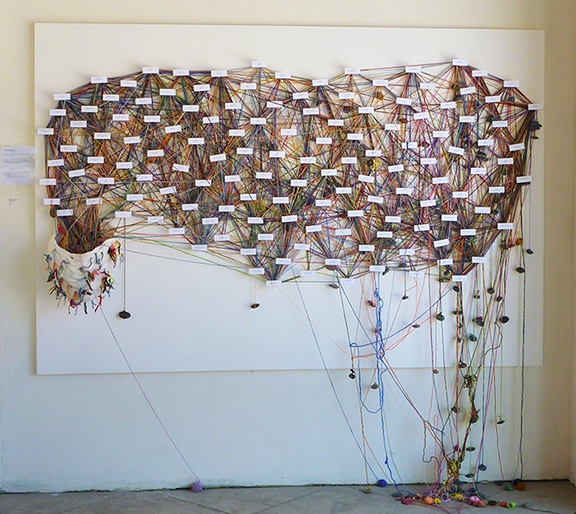
This book offers a new way of understanding and then narrowing this persistent and unacceptable achievement gap, through the development of a construct (replete with a new word that I hope will enter the lexicon) called “lasticity.” As a threshold matter, this approach puts its attention on both the breakaway students who succeed (not fail) and the institutions that serve them. It is a move away from our current “deficit” model for education.
Lasticity is a rich concept and process and descriptor that explains the remarkable capacities of breakaway students and the needed and oft-absent or unrecognized capacities of the institutions that serve them. It is rooted in reciprocity. Lasticity, as defined and described here, is grounded in psychology, neuroscience, sociology, education, trauma theory and moral philosophy.
Continue reading “What is Lasticity?”The views expressed herein are my own and do not represent the opinions of any institution or entity with whom I work.
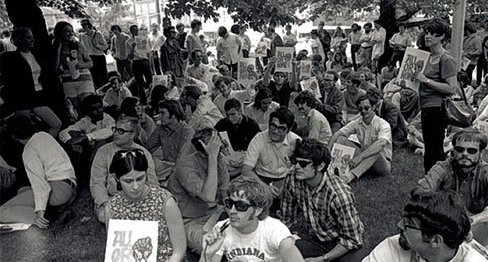
Crystal balls seem to be in short supply these days. Every day is filled with the unexpected and then the following day offers up even more surprises (not all of them good). When pollsters get things all so wrong, making a prediction for the world of education in 2017 is like walking down a street filled with potholes (of which there are many). Stated simply, it is easy to stumble.
That all said, here is my prediction — and what is perhaps more important than what I offer up here is a discussion of how folks within and outside inside institutions will respond if the prediction proves right. In other words, with the prediction comes a reaction and response that is needed — and, therein lies the deeper and more complex challenge. And, I hope LINKEDIN will circle back in 2018 and see how well the predictions panned out.
Continue reading “Prediction in Education for 2017: Powerful Protests”